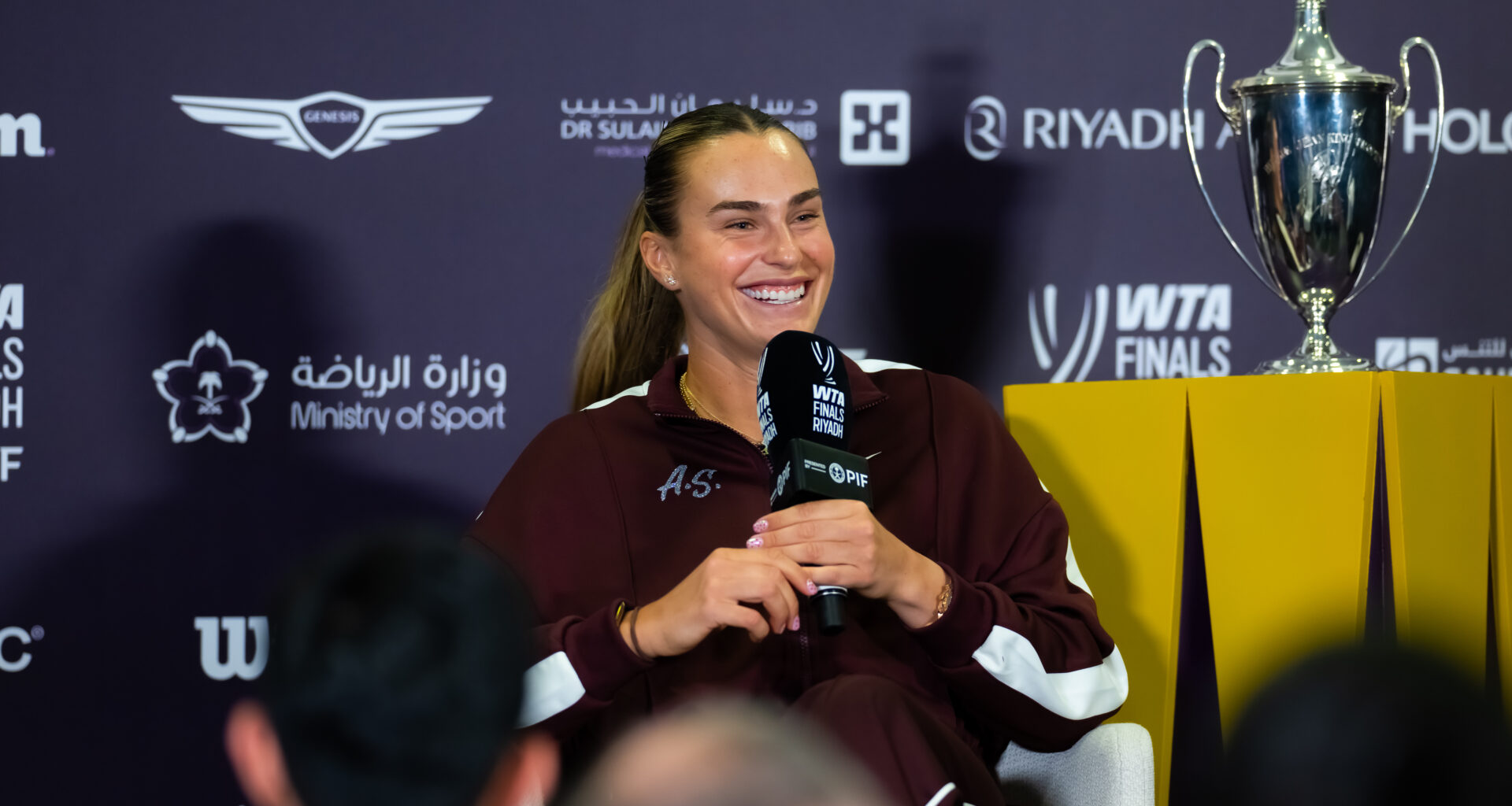RIYADH, Saudi Arabia — Iga Swiatek is the youngest singles player to qualify for five straight WTA Finals since Victoria Azarenka a dozen years ago.
With all her success — including six Grand Slam titles — Swiatek was asked Friday if she thought people sometimes forget she is still only 24 years old.
“Even I forget,” Swiatek said, smiling. “Sometimes I feel like I’m 40 already.
“For sure the life on tour is intense. It’s easy to forget how young I am, as well. I feel like I’ve just been on tour for 10 years. Actually it’s been six. It’s been just really busy, also efficient. This is something that I’m happy about.”
More than merely efficient. She’s won 60-plus matches for the fourth straight year. In 2001, Martina Hingis and Lindsay Davenport were the last to achieve that feat, the year Swiatek was born.
Swiatek, this year’s Wimbledon champion, takes on Australian Open winner Madison Keys Saturday in the first singles match of the tournament. She’s trying to replicate her title at the 2023 WTA Finals in Cancun.
“I am still young, so there’s a lot to change and improve in my game,” Swiatek said “It’s always good to find that perspective at the end, especially before the pre-season or before some periods of time when you have a bit more practice.”
Paolini under the weather
Jasmine Paolini, the only player here set to compete in both singles and doubles, left the facility with an illness early before her media appearances at King Saud University on Friday.
Doctors advised her to rest ahead of her Saturday doubles match. Top-seeded Paolini and Sara Errani are scheduled to meet the No. 8 team of Asia Muhammad and Demi Schuurs in a Martina Navratilova Group match.
Anisimova surprised even herself
Heading into Doha back in February, Amanda Anisimova was No. 41 in the PIF WTA Rankings. Then she proceeded to win her first career WTA 1000 title, and her ranking zoomed up to No. 18. In a post-match interview, the American said she’d be thrilled to break into the Top 10 by season’s end.
Mission accomplished. After reaching back-to-back major finals at Wimbledon and the US Open, and scoring another WTA 1000 in Beijing, Anisimova is sitting at a career high No. 4. Dizzying stuff for the 24-year-old.
She’s the only singles player here to come from outside the Top 20 this year.
“I was saying [the Top 10] was still a far reach,” Anisimova explained. “At the time, I thought they were huge goals, which they really are. The competition is so tough week in week out. You have to be your best physically and mentally to make it far in those tournaments.
“I think just me enjoying the process has gotten me this far. If you would have told me a year ago I would be sitting right here, it would be a little hard to believe.”
Major parity
This year’s Grand Slams went to four different Hologic WTA Tour players: Madison Keys (Australian Open), Coco Gauff (Roland Garros), Swiatek (Wimbledon) and Aryna Sabalenka (US Open).
“I think it’s honestly great to have four different champions,” Gauff said in her press conference. “All the girls have had a competitive year across the year. I think that it makes the sport more exciting when there’s multiple chances for something to happen.
“Carlos [Alcaraz] and Jannik [Sinner] are being great. There’s talk about there needing to be a third person to make it more interesting. I think it’s better to have different champions than the same two. I’m thinking long-term it’s more exciting for me as a fan watching the semis and quarters not knowing who is going to win.”
Alcaraz and Sinner have split the past eight major titles with four apiece.
‘Tough lessons’ pay off for Sabalenka
The World No. 1 lost in the finals of the season’s first two Grand Slams, but bounced back to win the US Open. That last result, Sabalenka said, might not have happened without the first two.
“At the end, I think it was [a] much-needed lesson,” she noted. “I had to learn how to control myself even better. Even though I improved a lot in that part of the game, still not good enough. I think in those big finals, that’s one thing that was missing was my emotions.
“I think especially after Roland Garros and the media and everything that happened after the match, I just had to sit back and look at everything from the side. After winning US Open, I was actually quite grateful for those lessons.”
Pegula and the small white ball
No. 5 singles seed Jessica Pegula is a pretty good tennis player. Golf? Not so much.
She was asked Friday which sport is more difficult from a mental standpoint.
“Well, right now for me definitely golf,” Pegula said, drawing laughter. “One bad hole and I’m mentally breaking down.
“That’s actually helped my tennis game a little bit. When I started playing a lot, I had to kind of be a little bit more strategic with my skill set because it wasn’t obviously as high as it is in tennis. That was kind of a fun learning curve.”
Pegula meets Gauff, her fellow American and former doubles partner, for a Sunday singles match in the Stefanie Graf Group.

